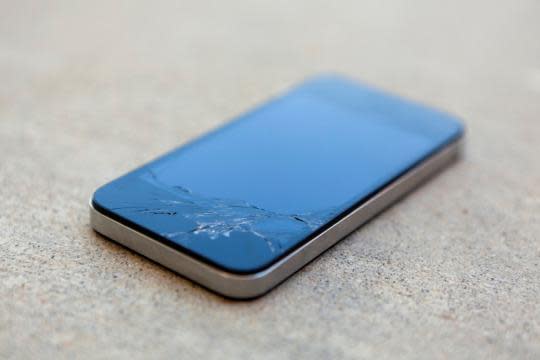Teen Accidentally Shoots Himself While Taking a Selfie

A 19-year-old accidentally shot and killed himself while taking a selfie this week. (Photo: Getty Images)
A teenager trying to take a risky selfie died Tuesday after he accidentally shot himself.
The 19-year-old victim, who has not been named in the press, was attempting to take a selfie while holding a gun to his head when the weapon fired, according to USA Today. Though his uncle ran into the home and tried to revive him, the victim died immediately. He had two daughters, and his family insists he was not suicidal. “All indications are this is an accident,” the Houston Police Department, which is investigating the incident, told USA Today.
STORY: Mom Starts Guns-With-Babies Safety Class
The tragedy highlights many teenagers’ difficulty exercising impulse control, says teen behavior expert Josh Shipp. “The prefrontal cortex, sometimes referred to as the executive functioning part of the brain, controls reasoning and helps us think before we act, and that part is changing and maturing well into adulthood,” Shipp tells Yahoo Parenting. “So teens are more likely to take risk and act on impulse.”
Shipp says parents can help train their kids to work on reasoning and thinking before they act. “What parents usually do, which is understandable because they love and want to protect their kids, is lecture. We lecture because we care and we want to prevent things like this, or even things far less severe, from happening. We don’t want to see our kids hurt,” he says. “But impulse is like a muscle that needs training, and just as you can’t lecture your bicep to make it stronger, it won’t work here, either. The equivalent of muscle training for impulse control is not telling your kid what to think and instead teaching them how to think.”
STORY: ‘I Hurt My Dad’: The Tragic Moment a 2-Year-Old Accidentally Shoots, Kills Father
Parents should focus on asking questions that will encourage critical thinking, Shipp says. “When they do something foolish, which they inevitably will because they’re human, instead of saying, ‘I cant believe you did that,’ ask questions like, ‘I know you’re not stupid, so what made you think that was a good idea? How did that turn out? What will you do differently next time?’”
It won’t work overnight, which Shipp acknowledges can be frustrating for a parent, but by engaging in these types of conversations on an ongoing basis, teens will slowly get more skilled at making smart decisions. Parents can also use news events as teachable moments, he says. “Try, ‘Hey, did you hear about what this celebrity did? Why do you think they did that? If you were in that situation, or if your friend was, what would you advise them?’ Then your teen will either say something smart and you’ll say, ‘Thank God,’ or they’ll say something that startles you and you’ll realize they still don’t get it and you need to address it as soon as possible,” Shipp says.
These kinds of conversations are vital in order to avoid potentially dangerous situations like the one this 19-year-old victim found himself in, Shipp explains. “One day your teen will have to make a critical decision, like whether or not to get in the car with someone who’s been drinking, and you will not be there,” he says. “If you have not trained them to think critically, it’s likely they won’t make a good decision.”
Please follow @YahooParenting on Facebook, Twitter, Instagram, and Pinterest. Have an interesting story to share about your family? Email us at YParenting (at) Yahoo.com.

